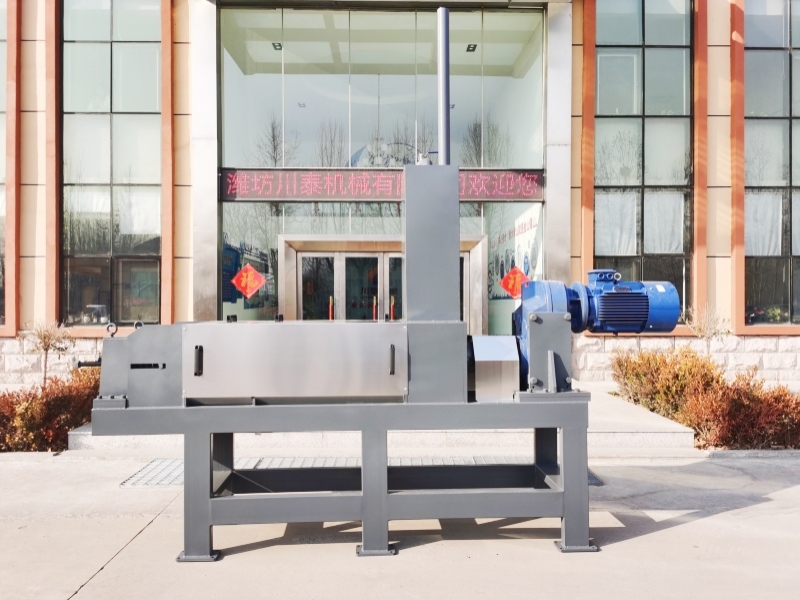
Cow dung dewatering machine
Cow dung dewatering machines have gained significant popularity in various agricultural and environmental sectors due to their efficient and sustainable waste management capabilities. These machines are designed to separate solid and liquid components from cow dung, resulting in a reduction of waste volume, odor control, and the production of nutrient-rich organic fertilizers. Here, we will explore the key application characteristics of cow dung dewatering machines.
Efficient Solid-Liquid Separation: Cow dung contains a mixture of solid and liquid components, making it challenging to handle and process. Cow dung dewatering machines utilize mechanical or hydraulic processes to effectively separate the solid and liquid fractions. This separation minimizes the overall volume of waste, making it easier to transport and manage.
Volume Reduction: By removing a significant portion of the liquid content from cow dung, dewatering machines lead to a substantial reduction in waste volume. This reduction not only optimizes storage and transportation but also contributes to the prevention of environmental contamination and the spread of diseases associated with untreated waste.
Odor Control: Cow dung emits unpleasant odors due to the presence of organic compounds and microbial activity. Dewatering machines help mitigate these odors by removing the liquid fraction where odor-causing compounds are more concentrated. The separated solid fraction can be further processed or used as a base for composting, reducing the generation of foul smells.
Biogas Production: Some cow dung dewatering machines are integrated with biogas digesters. The solid fraction obtained after dewatering can be used as feedstock for anaerobic digestion, a process that produces biogas – a renewable energy source consisting primarily of methane. This biogas can be used for cooking, heating, or electricity generation, adding an economic and energy production dimension to waste management.
Nutrient-Rich Organic Fertilizer: The separated solid fraction from cow dung contains valuable nutrients such as nitrogen, phosphorus, and potassium. After dewatering, the solid fraction can be further processed into high-quality organic fertilizers. These fertilizers enrich the soil, enhance crop yield, and promote sustainable agricultural practices.
Ease of Maintenance: Cow dung dewatering machines are designed for ease of use and maintenance. Regular maintenance routines are typically straightforward, and many machines feature user-friendly interfaces. This characteristic ensures that these machines can be operated efficiently by a range of operators, including small-scale farmers.
Customization and Scalability: Dewatering machines come in various sizes and configurations to accommodate the diverse needs of different users. From small-scale farmers to large livestock facilities, these machines can be customized and scaled according to the volume of cow dung generated, making them adaptable to various agricultural contexts.
In conclusion, cow dung dewatering machines offer numerous application characteristics that make them invaluable tools for sustainable waste management and resource utilization. By efficiently separating solid and liquid fractions, reducing waste volume, controlling odors, and generating biogas and organic fertilizers, these machines contribute to both environmental conservation and agricultural productivity. Their versatility, ease of maintenance, and scalability further enhance their utility across various sectors.




If your company wants to establish a business relationship with us, please briefly describe the cooperation intention and send an email to:chuantaiscrewpress@gmail.com























































































![[list:title]](/static/upload/image/20240528/1716877114510915.jpg)